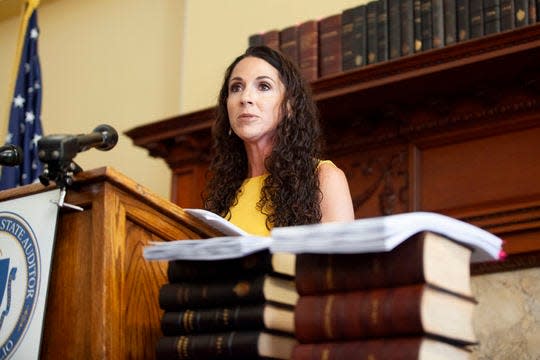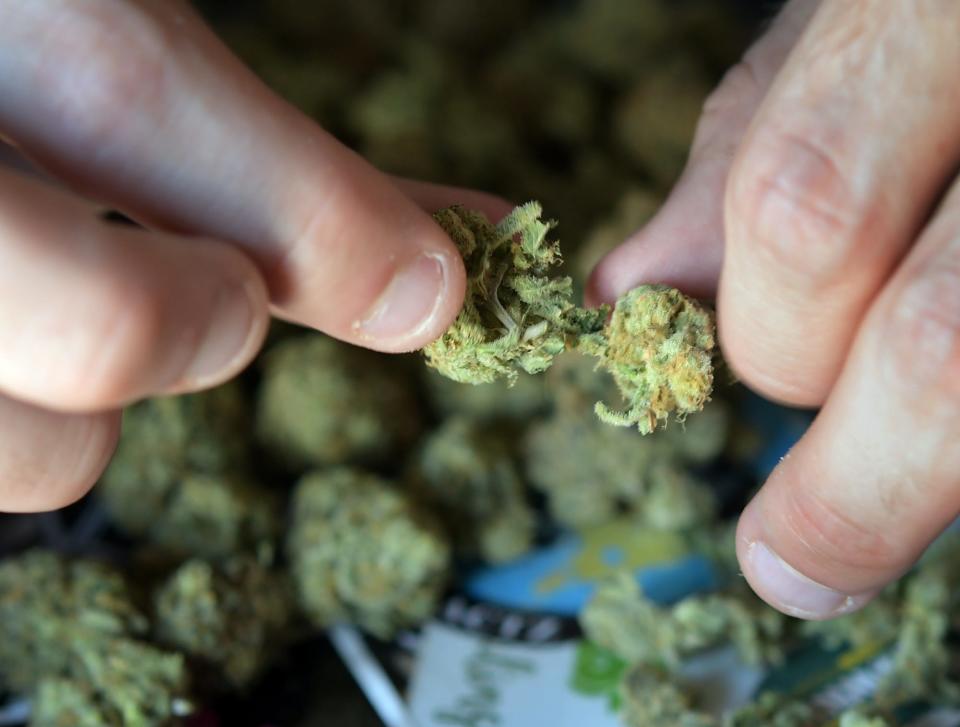State audit: Mass. cannabis commission allowed expired pot to be sold

An audit of the Cannabis Control Commission launched under the Baker-Polito administration in 2019, released Tuesday, found deficiencies in its quality-control measures and pesticide reporting data, allowing for the sale of products totaling more than $10 million that were a year out of their testing dates.
The two-year deep dive into the workings of the then-fledgling commission also revealed discrepancies in testing parameters and reporting dates, as well as dissension between the agency and the Massachusetts Department of Agricultural Resources as to which entity is responsible for pesticide use in the state and, more specifically, in the marijuana industry.
In its summary, the auditor found:
The commission did not identify products that had expired, and failed to prevent their sale.
The agency also failed to ensure that marijuana establishments and independent testing laboratories report products that had tested positive for pesticides within a required 72-hour window from when the contaminants were first identified.
The body also failed to provide employee training in cybersecurity awareness.
In releasing the report, Auditor Diana DiZoglio said the responses to the findings supplied by the commission indicate the body is “taking steps to implement changes and improve policies and procedures to reflect most of our recommendations."
“I appreciate the willingness to comply with our audit team and will be following up in the near future,” said DiZoglio.
Commission response
In response, a spokesperson for the commission on Wednesday said: “The commission appreciates the time, effort and collaboration the agency has enjoyed with the Office of State Auditor since their audit began in February 2021. We share the auditor’s goal of making sure Massachusetts’ legal cannabis industry is safe and we take all findings seriously.”
The spokesperson said Massachusetts residents should “remain confident that the regulated products they purchase have passed testing for contaminants and the results are current.”
The auditor also notes that the commission has made adjustments to its process. Changes include the licensing of additional independent testing laboratories, increasing the availability of testing from two locations to 14. The commission pointed out in its prepared statement that two grow companies were fined a total of $550,000 in 2020 for violating pesticide use policy.

However, the audit revealed that products containing marijuana a year past its testing date were sold to consumers — almost 737 pounds of marijuana flower and about 131,000 other products worth $10 million. While the commission argued that the products were not necessarily expired, state law indicates that items a year past their test dates should be retested for contaminants, adulterants and loss of potency.
Ongoing turmoil at commission
The report comes on the heels of the loss of the commission chairperson, Shannon O’Brien, a former legislator and Democratic candidate for governor in 2002, who was suspended with pay on Sept. 14, a little over a year after her appointment by state Treasurer Deborah Goldberg.
On Sept. 18, state legislators sent a letter to the Joint Committee on Cannabis Policy requesting outside oversight of the agency.
The executive director of the CCC, Shawn Collins, is on parental leave.
Now the auditor’s report, conducted between Jan. 1, 2019, and Dec. 31, 2020, reveals problems in its quality control process.
Discrepancies between state law and CCC policy and procedures include:
The time frame in which marijuana testing laboratories must report the presence of pesticides in a product batch. The state says it is within 72 hours of finding the substance, the commission says it is 72 hours after a certificate of analysis is issued (which is up to a 13-day difference).
Who controls pesticide use in the marijuana industry? The state Department of Agricultural Resources claims sole responsibility; the CCC claims it shares jurisdiction.
Is there an acceptable level of pesticide allowed in marijuana products? The Department of Agricultural Resources says no; however, the CCC has allowed 4.4 parts per billion in product that it sold to the public, claiming that detectable trace amounts less than the federal standard of 10 parts per billion is acceptable.
Massachusetts tracks its marijuana products from seed to sale, testing for both potency as well as contaminants. In testing the marijuana, independent laboratories licensed by the state seek out contaminants, including naturally occurring metals like arsenic, cadmium, lead and mercury; microbiological contamination, fungus and mold; solvents like ethanol and hexane; and traces of pesticides on the plants.
Marijuana testing requirements
The state requires all marijuana products, from buds sold for smoking to edibles, tinctures and other formulations derived from cannabis, must be tested before being sold. If the product remains unsold for a year or is reformulated, it must be tested a second time before it can be released for retail sale.
If contaminants are found, the independent testing lab must notify the state. Product contamination can be mitigated in some cases, but marijuana found to contain any traces of pesticides must be destroyed, according to state regulations. Those plants must be recorded and identified as destroyed in the state tracking system.
The audit found discrepancies between state requirements and the procedures used by independent laboratories for initiating reporting procedures.
The auditor noted that state law requires pesticide presence be reported within 72 hours of its identification in the crop. The CCC countered that while the state issues licenses to the laboratories, these must also be accredited by the International Organization for Standardization and the International Electrotechnical Commission. Those reporting standards differ; the commission said the accredited laboratories only report pesticide presence once the initial tests and retests have been completed and a certificate of analysis has been issued.
In the report, the auditor said the commission’s reasoning was not good enough. In almost half the instances where pesticides were found, there was a delay in notification, and one case in which the laboratory failed to report its findings to the state.
The report recommends the commission clarify which reporting protocol laboratories should adhere to going forward.
This article originally appeared on Telegram & Gazette: Expired pot, pesticide concerns cited in Mass. cannabis audit

